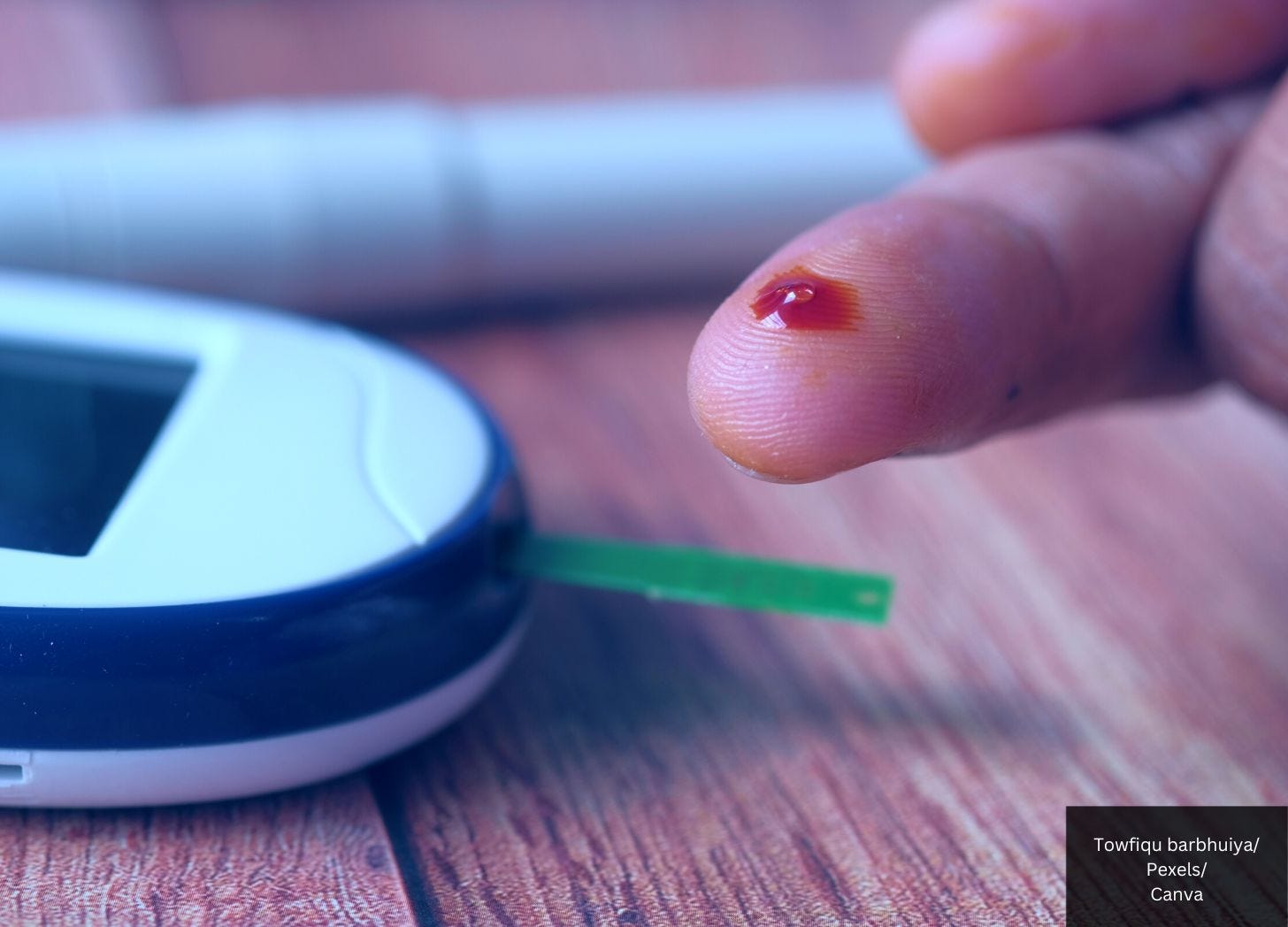COVID-19 Vaccine 'Appears to Be the Cause' of 'Abnormal Blood Glucose Level': Letter in Journal 'Advanced Biological Research'
"The endocrinological problem which develops after getting the COVID-19 immunization is of great concern to clinical endocrinology," the authors write.
Authors of a November letter to the editor of the journal Advanced Biological Research titled “COVID-19 Vaccination and Abnormal Blood Glucose Level” raised “concern[s]” regarding the link between COVID-19 vaccines and an increase in blood glucose levels.
“The greatest concern,” they write in their introduction, “is with any potential side effects because [COVID] immunization is new.”
The negative effects of COVID-19 immunization “have been the subject of numerous reports, with an emphasis on their variety,” the authors add.
They go on to warn about the negative effect the COVID vaccine has on the endocrine system, which is a network of hormone-producing glands in the human body.
“The endocrinological problem which develops after getting the COVID-19 immunization is of great concern to clinical endocrinology,” the letter reads. “The authors of this paper emphasize the important concern regarding the possibility of a clinical problem following COVID-19 vaccination, which is an abnormal blood glucose level.”
The authors suggest a causal link between the vaccines and abnormal glucose levels.
“A vaccine appears to be the cause of a significant elevation in plasma glucose,” they write. “A little to moderate rise in blood sugar levels has been hypothesized to occur after vaccination.”
They cite one patient’s newly developed diabetes mellitus—a chronic metabolic disorder characterized by high blood sugar levels—following the COVID-19 vaccine.
They also cite “rumors that the vaccine administration and diabetic development of ketoacidosis may be clinically associated.”
Ketoacidosis is a potentially life-threatening complication of diabetes that occurs when the body starts breaking down fat too quickly, leading to the production of acidic ketones.
“Half a week after the administration of first dose of vaccine, the vaccine recipient often develops a lot of water drinking, a lot of urination, rapid pulse rate, nausea, and loss of strength without previous clinical diabetic history,” the authors write.
They cite doctors who recommended that persons with diabetes “be monitored for hyperglycemia and ketonemia for at least two weeks after receiving the COVID-19 vaccine.”
Moreover, the letter authors point to the European Safety Analysis Report confirming that "type 1 or 2 diabetes, and excessive blood sugar “are becoming more common after receiving messenger ribonucleic acid (mRNA) vaccines.”
They go on to reference a report on the COVID-19 vaccine in pregnant women that found “a total of 15.3% of newborns needed to be admitted to the neonatal critical care unit (NICU). Hypoglycemia accounted for 61.5% of NICU admissions.”
The letter concludes by underscoring the risk of abnormal blood glucose levels associated with COVID vaccines:
“In some unique scenarios in clinical practice, a case who receives COVID-19 vaccine might encounter events with aberrant blood glucose changes, including high blood glucose and hypoglycemia,” it reads.
“Basic clinical management might be effective and the results in successful case management in some patients. If vaccine recipient experiences post-vaccination problems, including one with underlying diabetic illness, it is advisable to give them special concern.”
Letter author affiliations include:
Private Academic Consultant, Bangkok, Thailand
Adjunct Professor, Joseph Ayobabalola University, Ikeji-Arakeji, Nigeria
Honorary Professor, Dr. DY Patil Medical College - Dr. D. Y. Patil Vidyapeeth, Pune, India
Distinguished Professor, Parasitic Disease Research Center, Suranaree University of Technology, Nakhon Ratchasima, Thailand
Pfizer Inc.’s COVID vaccine safety data show the company knew about the drug being linked to “Glucose Transporter Type 1 Deficiency Syndrome (GLUT1-DS)”—a metabolic disorder caused by a deficiency of the GLUT1 protein responsible for transporting glucose from the bloodstream into the cerebrospinal fluid surrounding the brain—before releasing the jab for public use.
Diabetic complications are explicitly referenced eight times in Pfizer’s data.
You can download the letter in Advanced Biological Research below:




